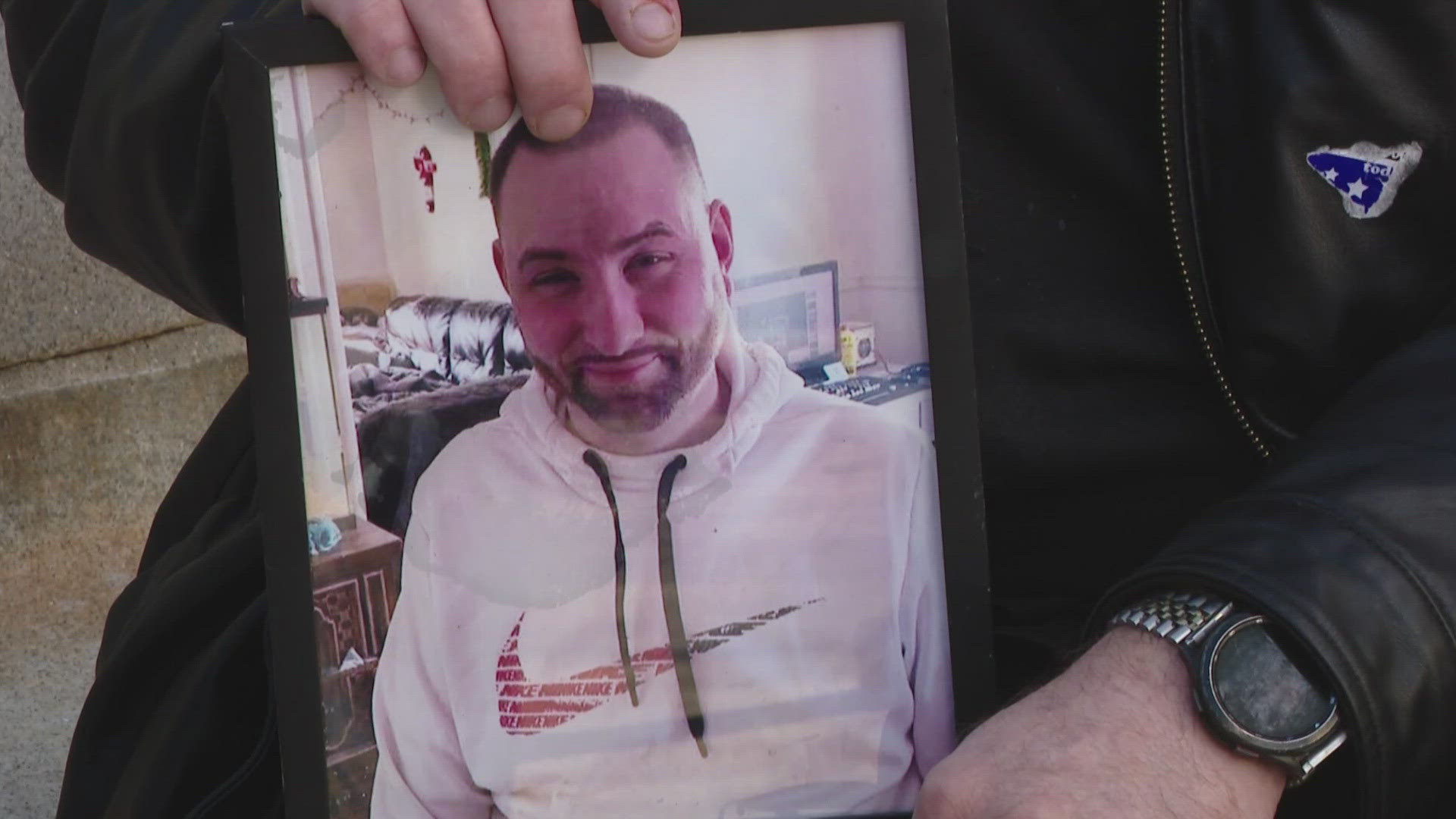PORTLAND, Maine — Since the mass shooting in Lewiston a little over a year ago, there's been a lot of talk about making Maine's gun laws more strict.
This past legislative session, Gov. Janet Mills pushed for and approved a tougher yellow flag law, making it easier for police to step in and remove guns away from people who could harm themselves or others.
Arthur Barnard lost his son, Arthur Strout, in the Lewiston mass shooting. He says yellow flag laws aren't enough.
Barnard is one of many who are petitioning, collecting signatures to get Maine to join 21 other states and the District of Columbia in enacting a red flag law, also known as an "extreme risk protection order."
If passed, such a law would allow families to go directly to a judge and request the removal of their family member's guns and weapons if they believe they could cause harm to themselves and others.
In New England alone, Vermont, Massachusetts, Rhode Island, and Connecticut already have red flag laws on the books. Back in 2020, the New Hampshire Legislature passed one, too, but it was vetoed by Gov. Chris Sununu.
Barnard said last year, he played his last game of pool with his son at Schemengee's pool hall.
For him, Oct. 25, the day of the mass shootings, seemed like every other day, until it wasn't.
"I had to leave. You know, we took just my car that night. I told him to leave his car home so we could just ride together," Barnard said. "I said, 'You know you have to leave with me, man.' I think I called him a 'bonehead' or something. And he said, 'I just want to play a couple more games with my friend.'"
Those "couple more games" were likely never played, because less than five minutes after Barnard left the bar, Robert Card, the man responsible for killing 18 people in the Lewiston mass shootings, stormed in.
Card fired round after round from his AR-15 style rifle, a gun Barnard said he believes Card wouldn't have had if there were tighter gun laws and if people had listened to Card's family's warnings that he was a danger to himself and others.
"When I see somebody else lose their kid or family, it's like a gut punch every time. We have to do better. We've gotten careless... this country has gotten careless with our gun laws," Barnard said.
Barnard believes people, families, deserve better. He's one of many concerned citizens who support the red flag law proposal.
Nacole Palmer from the Maine Gun Safety Coalition said Card's family could have done much more to stop him if the red flag law was in place.
"They tried really hard to separate him from those weapons while he was in that crisis, and unfortunately, there was not a legal tool to allow them to act on that," Palmer said.
Palmer said she believes the yellow flag law is not as effective as the extreme risk protection order. She explained that there are several steps that must be taken before it can be used.
The person must first be taken into custody by law enforcement, she said. Then there has to be an examination by a psychiatric professional before moving forward with the removal of someone's weapons.
Palmer sees the red flag law as a legal tool, but Laura Whitcomb, who leads Gun Owners of Maine sees red flag laws as violations to the constitutional right to bear arms.
In a statement, Whitcomb wrote, "Extreme risk protection orders do nothing to get the person help, all it does is take their 'dangerous weapons.' There is no mechanism of action in their proposed language to get anyone 'the help they need.'"
Barnard said that following the second amendment as gospel will leave many more families clinging to memories and photos of their loved ones.
"If you would have told somebody in 1792 that we would have guns that could shoot 60 to 100 bullets in a minute, they would look at you crazy, and they would have driven you out of wherever you were. You would have always been crazy to them."
There has been significant pushback against the idea of a red flag law in Maine. Representatives from organizations like Gun Owners of Maine said they plan to fight against it when it goes before lawmakers in the upcoming legislative session. They also said they'll be working to repeal laws like the 72-hour waiting period.

